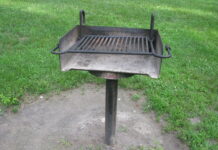Photo credit: DiasporaEngager (www.DiasporaEngager.com).
This week, the Torah goes into detail about what is called leprosy — but what is actually any infectious skin disease. The Priests were the equivalent of the medical class, and their role was to cure sick individuals, combining both the physical and spiritual.
This week’s Haftarah, on the other hand, deals with an event that took place in the northern Kingdom of Israel during the reign of Yehoram the pagan son of Ahab, when the prophet Elisha was the spiritual authority in Samaria. The two did not get along well.
At that time, Aram (modern day Syria) was the dominant power and its general was Naaman. He was a leper, which did not seem to have stopped him from being a successful military man. Aram regularly invaded Israel and took captives into slavery.
One such captive was an Israeli girl who served Naaman’s wife and told her mistress about this great man in Israel who could cure lepers. The King of Aram sent Naaman with a letter to the Israelite King, commanding him to cure Naaman. When the letter arrived, the Israeli king panicked, thinking this was going to be used by Aram as an excuse to invade.
When Elisha heard that the king of Israel had torn his clothes in despair, he sent a message to the king: “Why have you [ripped] your clothes? Let him come to me, and he will learn that there is a prophet in Israel.” So Naaman came with his horses and chariots to Elisha’s house. Elisha sent a messenger to say to him, “Go and bathe seven times in the Jordan, and your flesh shall be restored, and you shall be pure.”
But Naaman was angry. He said, “I thought he would come out to me, and would invoke his God by name, and would wave his hand toward the spot, and cure me. Are not the rivers of Damascus better than all the waters of Israel? I could bathe in them and be pure!” And he stalked off in a rage. But his servants came forward and spoke to him. “Sir,” they said, “if the prophet told you to do something difficult, would you not do it? How much more when he has only said to you, ‘Bathe and be pure.’”
So, Naaman went down and immersed himself in the Jordan seven times, and he was cured. Returning to Elisha he said, “Now I know that there is no God in the whole world except in Israel! So please accept a gift from your servant.”
The main point of the story is that Elisha cured Naaman not through magic, but rather through faith. As Naaman said, he expected Elisha to perform some magic — just dipping in the water seemed pointless. What Elisha was doing was stressing the importance of faith and human will in matters of health. Naaman was expecting spells. Elisha wanted to distinguish between magic and faith.
You might also see this as a metaphor for how we, who live in pagan societies, can remain loyal to our religious life. The postscript of this story is that Elisha’s servant Geyhazi betrayed his master’s values. Elisha refused any gifts of gratitude (unlike too many rabbis nowadays). Still, Geyhazi had run after Neeman telling him that Elisha had changed his mind, and asked for gifts, when Geyhazi only wanted them for himself. When Elisha found out about his betrayal, Geyhazi was punished by being stricken with leprosy. Poetic justice.
Israel was idolatrous, too. There were good and bad people — just like there are now. Shabbat Shalom.
The author is a writer and rabbi, currently living in New York.
Source of original article: Jeremy Rosen / Opinion – Algemeiner.com (www.algemeiner.com).
The content of this article does not necessarily reflect the views or opinion of Global Diaspora News (www.GlobalDiasporaNews.com).
To submit your press release: (https://www.GlobalDiasporaNews.com/pr).
To advertise on Global Diaspora News: (www.GlobalDiasporaNews.com/ads).
Sign up to Global Diaspora News newsletter (https://www.GlobalDiasporaNews.com/newsletter/) to start receiving updates and opportunities directly in your email inbox for free.



















![Gospel Campaign El Salvador 2022 | Nathan Morris [Official Video]](https://www.globaldiasporanews.com/wp-content/uploads/2023/01/Gospel-Campaign-El-Salvador-2022-Nathan-Morris-Official-Video-100x70.jpg)














